Introduction
One of the most important financial choices you will ever make is buying a house. A thorough inspection of your home – health & safety check-up, is necessary to protect your investment and provide peace of mind. We shall discuss the value of a home inspection in this article when purchasing a property. A professional home inspection is essential for preserving your future as a homeowner and helping you make educated decisions, from spotting possible problems to negotiating repairs with the seller.
Home inspections play a crucial part in India’s real estate market, which is dynamic and involves large investments and consequential judgments. Home inspections are an important procedure that are sometimes disregarded, but they are essential for making educated decisions, ensuring transparency, and building confidence between buyers and sellers. Offering “Total Peace of Mind” and insights into the condition of the property, it is a crucial step for both buyers and sellers. In this comprehensive guide, we delve into their importance in the Indian context.
Knowing the Process of a Home / Property Inspection
A thorough evaluation of all areas of the property, including systems like the plumbing and electrical systems and civil engineering components, is part of the house inspection process. It provides a chance for remedial action by assisting in the identification of possible problems.
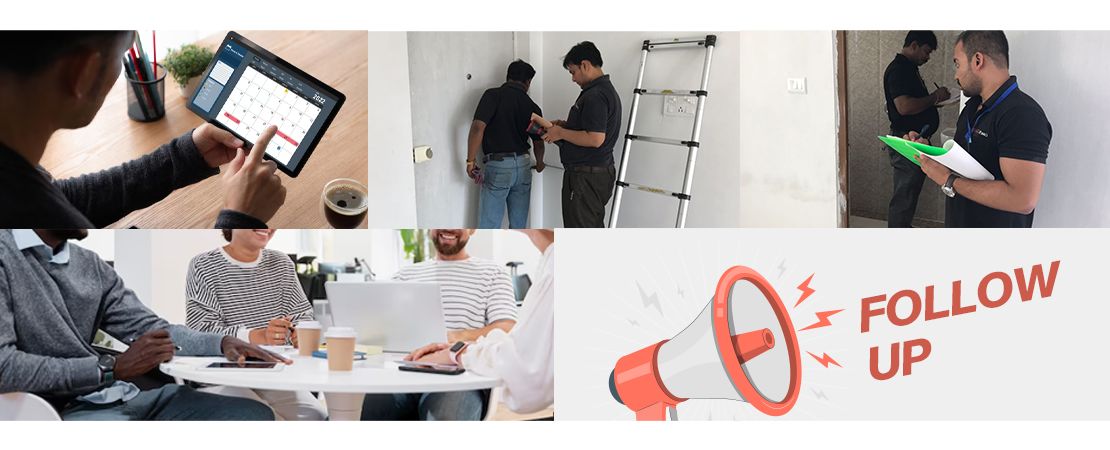
Understanding the Procedure for a Home/Property Inspection:
- Scheduling an Appointment – The first step in the inspection process is to schedule an appointment with a reputable inspection company (either by call or clicking enquire now). This can typically be done online or over the phone, and appointments are usually available within a few days, depending on the inspector’s availability and the urgency of the inspection.
- On-Site Inspection – On the day of the inspection, the inspector will arrive with a 3-member at the property at the scheduled time. They will conduct a thorough examination of the entire property, including both the interior and exterior, as well as any accessible areas.
- Reporting – After completing the inspection, they will compile their observations into a detailed inspection report, which typically includes descriptions of any issues found along-with related pictures, and recommendations / solutions for repairs.
- Client Communication: Once the inspection is complete, the inspector will review their findings with the client, either in person or over the phone. They will discuss any significant issues or concerns identified during the inspection and answer any questions the client may have.
- Follow-Up and Support: After receiving the inspection report, the client may have additional questions or require further clarification. The inspector will be available to provide ongoing support and assistance as needed over telephone, helping the client understand the findings.
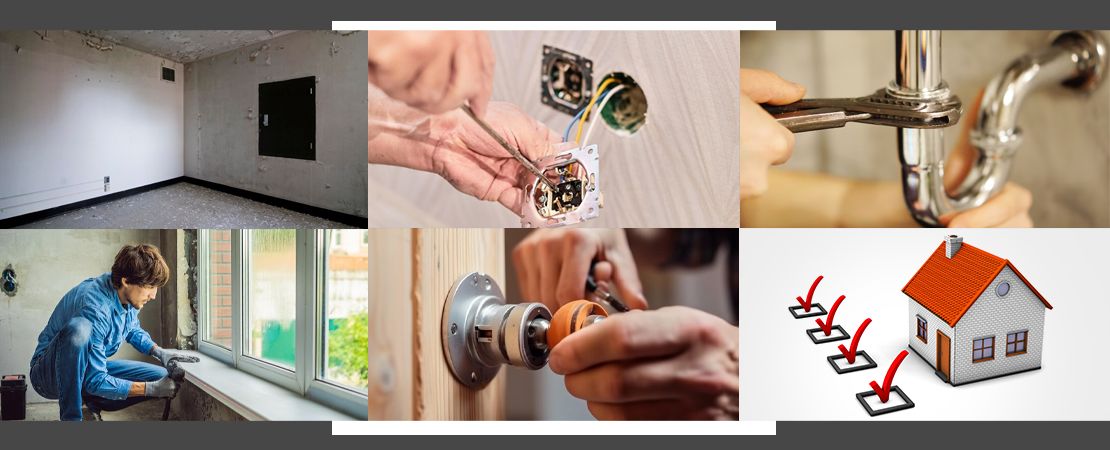
What comes under the scope of a Home Inspection?
The scope of a home inspection encompasses a comprehensive assessment of various aspects of a property to evaluate its condition and identify any potential issues or concerns.
As every property is unique, its needs for inspection to determine the problem areas as they may be different and unique as the house itself.
In general, a home inspection encompasses all possible parts of the home including
- Floor, Ceiling and Walls – Construction quality defects
- Electrical Aspects, Fittings and Fixtures
- Plumbing Aspects, Fittings and Fixtures
- Condition of Windows, Doors and their framework / fittings
- Construction Aspects
- Safety Aspects

Property Inspection’s Components
- The Home Inspector: Home inspector possesses more skills and expertise than just building knowledge. As a problem solver, a home inspector must be able to recognize the telltale symptoms of component failure and guide clients toward the appropriate remedies. Also, home inspectors need to be skilled communicators. Both orally and in writing, the presentation is significant. And without a doubt, their first priority is your home’s safety.
- Modern Instruments & Technology: The newest instruments and technology are available to home inspectors, enabling them to find hidden problems as well. These technologies improve their capacity to precisely and effectively identify possible issues.
- The Inspection Process: During a home inspection, the inspection team usually consists of a home inspector, electrician, and plumber. Together, they conduct a non-invasive, visual examination of all accessible areas and their respective elements, along with any additional components present in the property. This comprehensive examination aims to identify any potential issues or concerns.
- Software Driven Reports: These reports detail the identified issues, accompanied by relevant real-time pictures and their respective solutions. This document provides clients with a clear understanding of the property’s condition and any necessary actions that need to be taken.
For more details, Read: So What exactly is Home Inspection?
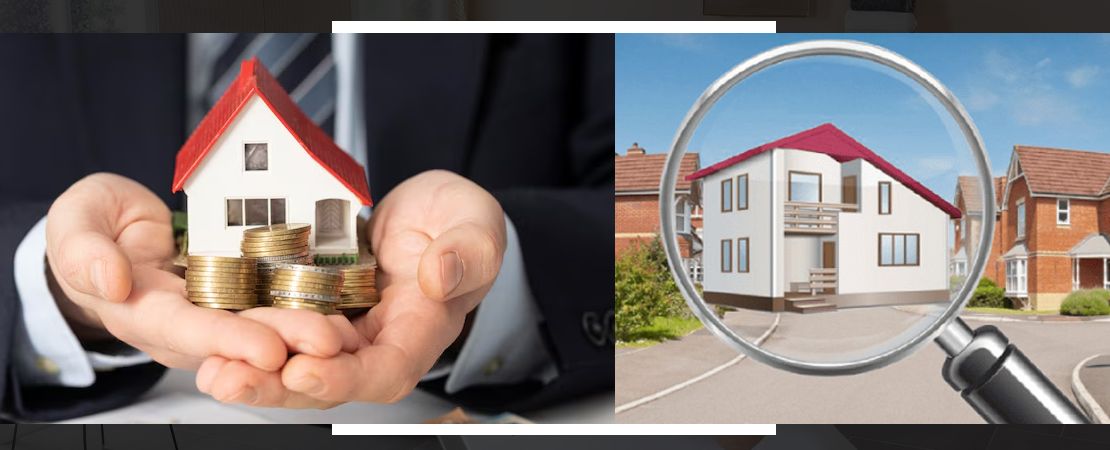
Ensure Your Property Investment Is Safe and Sound with Home Inspection
Buying a property is a significant milestone in anyone’s life. Whether it is a home or a commercial space, it represents a substantial financial investment. The property inspection is a comprehensive evaluation of the property’s condition, highlighting any potential issues or hidden problems. We will explore the importance of property inspections and how they safeguard your investment
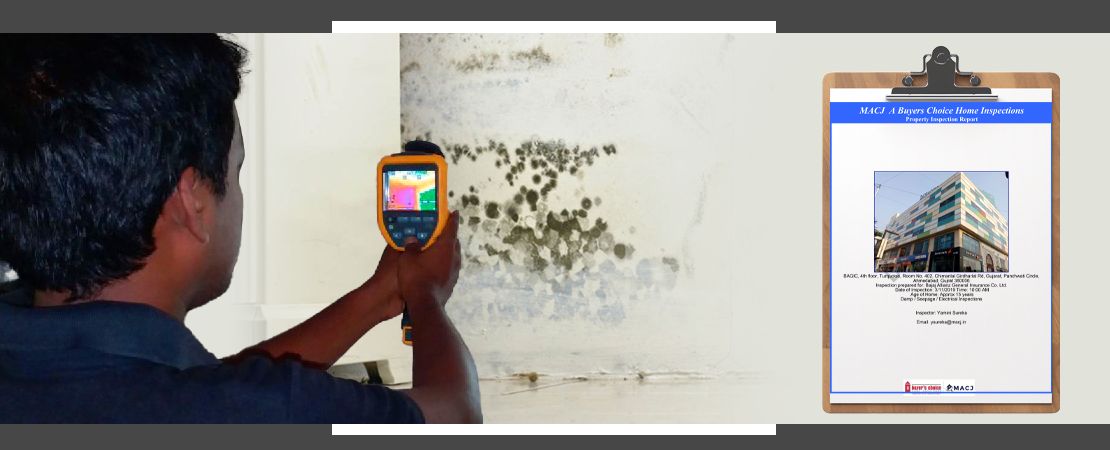
1. Expose Hidden Problems
Even though a house could seem perfect on the outside, a professional property inspection is necessary to uncover any hidden problems. A comprehensive examination will prevent expensive surprises later on, from construction quality defects to plumbing or electrical problems.
A home inspection serves as a crucial mechanism for uncovering hidden problems that may lurk beneath the surface of a property. Here’s how this process helps expose such issues:
- Thorough Examination: A qualified home inspector conducts a comprehensive examination of the property, scrutinizing various aspects such as the construction quality, electrical systems, plumbing etc. This meticulous assessment aims to uncover any concealed issues that may not be immediately apparent to the untrained eye.
- Expert Insight: With their specialized knowledge and experience, home inspectors can identify potential problems that may go unnoticed by prospective buyers. Whether it is detecting signs of water damage, mold growth, pest infestations, or structural deficiencies, inspectors possess the expertise to recognize subtle indicators of underlying issues.
- Utilization of Tools and Techniques: Home inspectors leverage a range of tools and techniques to delve deep into the property’s condition. This may include using thermal imaging cameras to detect hidden moisture or internal leakage.
- Detailed Reporting: Following the inspection, the inspector provides a comprehensive report detailing their findings. This report outlines any identified issues, accompanied by photographic evidence and recommendations for necessary repairs.
In short, a home inspection plays a vital role in exposing hidden problems within a property. By conducting a thorough examination, leveraging expert insight and tools, providing detailed reporting, and empowering buyers with valuable information, home inspectors help uncover potential issues that may impact the safety, integrity, and value of the property.
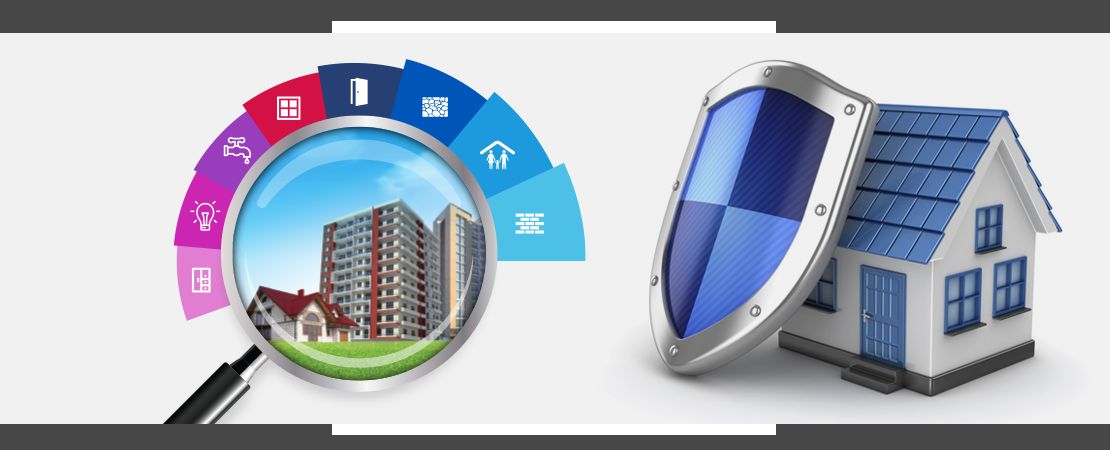
2. Ensuring Safety Through Home Inspection
Safety is paramount when it comes to purchasing a home, and a comprehensive home inspection is a critical step in ensuring the safety of both you and your loved ones. Here’s how a home inspection contributes to safeguarding your wellbeing:
- Identification of Hazards: A professional home inspector meticulously examines the property for potential safety hazards. This includes assessing the condition of electrical systems, identifying fire hazards, checking for other general safety hazards (i.e tripping hazard). By identifying these hazards earlier, you can take proactive measures to mitigate risks and create a safer living environment.
- Detection of Construction Quality Issues: One important aspect of a home inspection is the identification of construction quality issues. This involves assessing the condition and materials used in the construction of the property to determine if there are any deficiencies or shortcomings that could affect its integrity or longevity.
- Peace of Mind: Knowing that your home has undergone a comprehensive inspection for safety hazards provides peace of mind. It allows you to move into your new home with confidence, knowing that you’ve taken proactive steps to protect your family’s wellbeing.
3. Assessing Constructional Integrity:
Ensuring the constructional / structural integrity of a building is paramount for its durability and safety. A property inspection meticulously evaluates the basic elements – (wall, ceiling, floor, door, window, plumbing, electrical),and overall structure, checking for any signs of deterioration, cracks etc . Identifying structural issues at an early stage can help prevent future disasters and mitigate the need for expensive repairs. It instills peace of mind, reassuring you that the property you are investing in is constructed to withstand the test of time.
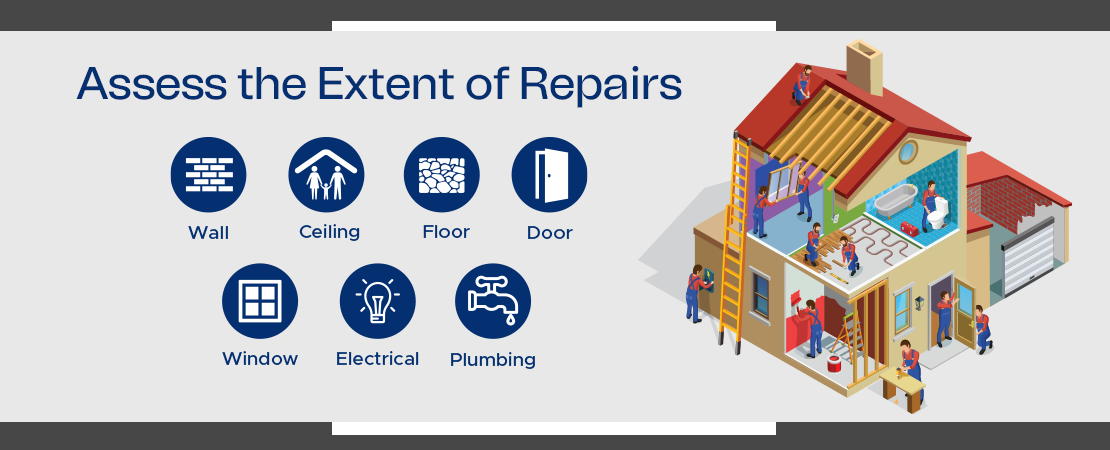
4. Assess the Extent of Repairs
A comprehensive home inspection identifies areas that need maintenance and repairs and sheds light on the property’s general state. Equipped with this knowledge, you can evaluate the extent of repairs required. It enables you to plan future improvements. Recognizing the possible expenses in advance helps prevent unpleasant surprises and future financial pressure.
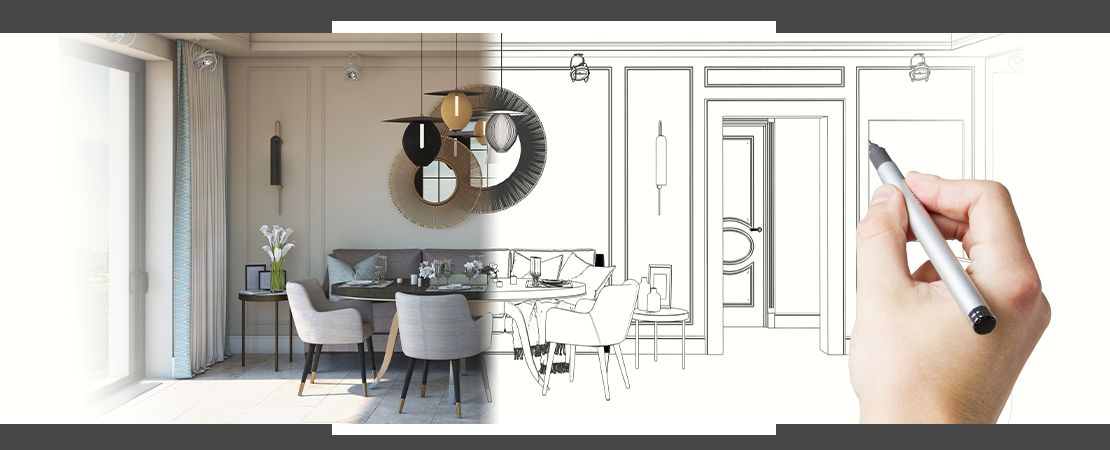
5. Planning for Renovations
If you are thinking about making improvements or modifications to the property, a home inspection offers insightful information. It assists you in comprehending the state of the systems and structure as they stand, enabling you to make the appropriate plans for adjustments. Understanding the state of the property clearly will help you plan your budget and steer clear of unforeseen costs when you embark on your remodeling project.
Last words
In conclusion, a home inspection is an indispensable step in the home-buying process. It uncovers hidden problems, evaluates safety hazards, and provides a comprehensive assessment of the property’s condition. Armed with this information, you can make informed decisions and plan for future maintenance needs and repairs. Investing in a professional home inspection is a wise choice that provides peace of mind, safeguards your investment, and sets the stage for a confident and enjoyable homeownership experience.
Internal Reference Link :
- https://macj-abuyerschoice.com/home-inspection-area/why-home-inspection/
- https://macj-abuyerschoice.com/
- https://macj-abuyerschoice.com/so-what-exactly-is-home-inspection
- https://macj-abuyerschoice.com/moisture-damp-inspection/
- https://macj-abuyerschoice.com/how-home-inspection-solves-the-problems-of-waterproofing-companies/
- https://macj-abuyerschoice.com/inspect-before-renovate-how-why/

